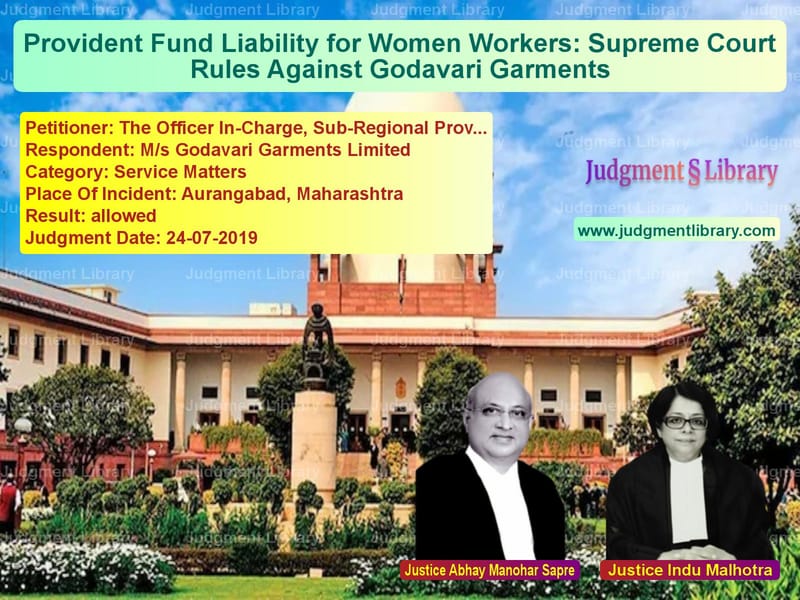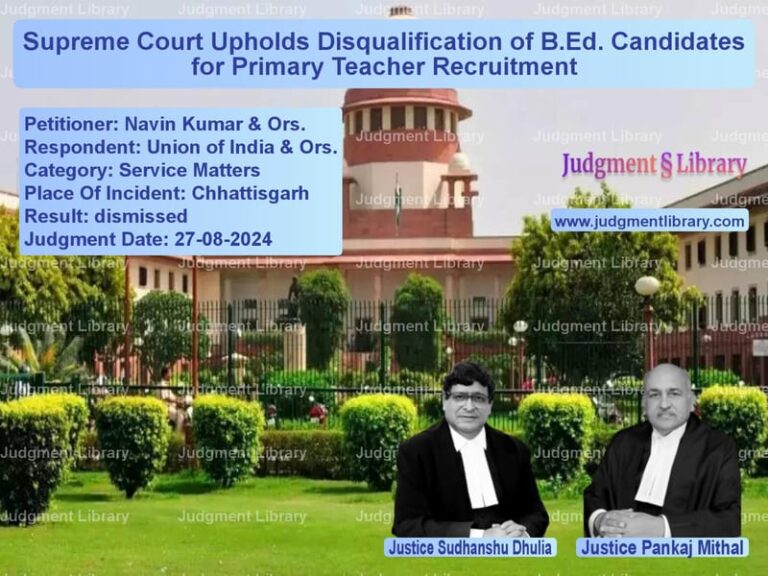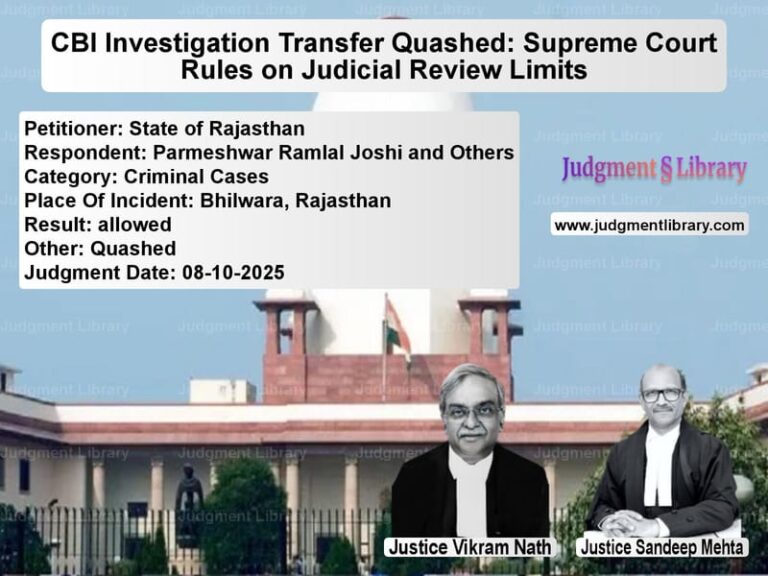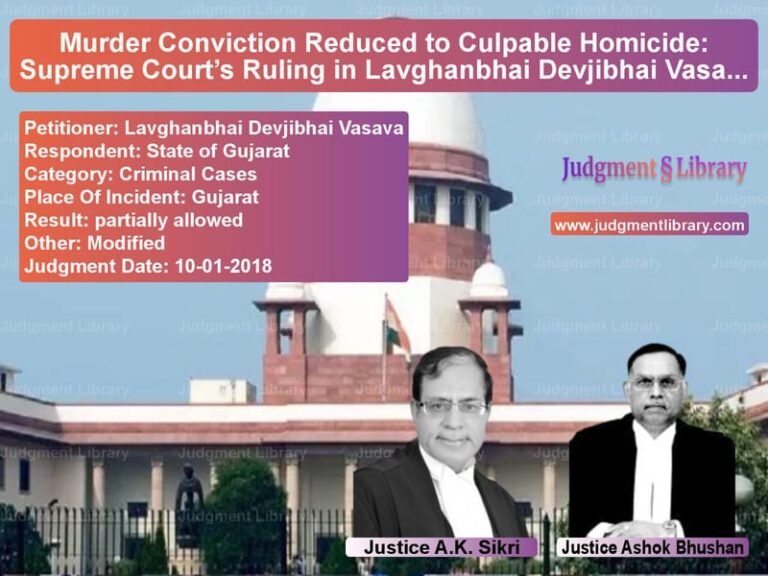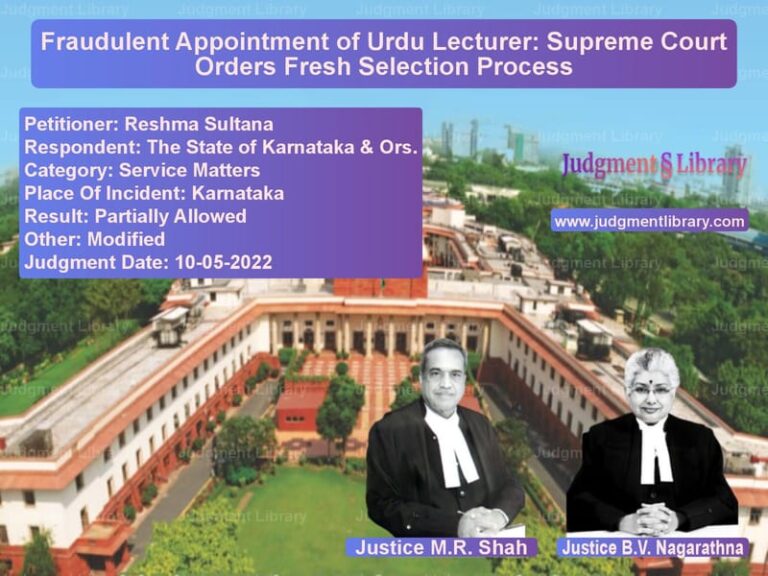Provident Fund Liability for Women Workers: Supreme Court Rules Against Godavari Garments
The case of The Officer In-Charge, Sub-Regional Provident Fund Office vs. M/s Godavari Garments Ltd. revolved around whether women workers engaged in stitching garments at home were employees under the Employees’ Provident Fund and Miscellaneous Provisions Act, 1952 (EPF Act). The Supreme Court had to determine if the employer was liable to make provident fund contributions for these workers.
M/s Godavari Garments Ltd., a subsidiary of the Marathwada Development Corporation, employed women workers to stitch garments from their homes. The company provided the raw materials, such as fabric, thread, and buttons, while the workers used their own sewing machines. The Provident Fund authorities assessed dues amounting to Rs. 15,97,087/- for the period from 1979 to 1991, contending that the women workers were employees under the EPF Act. The Bombay High Court set aside this assessment, ruling in favor of the company, leading to the present appeal before the Supreme Court.
Arguments of the Petitioner
The Provident Fund authorities, represented by their legal counsel, contended:
“The women workers employed by the respondent company fall within the definition of ‘employee’ under Section 2(f) of the EPF Act. Hence, the company is liable to pay Provident Fund contributions for them.”
The petitioners further argued:
- The women workers were directly engaged by the company and paid wages on a per-piece basis.
- The company exercised control over the production process by providing raw materials and setting quality standards.
- Even though the work was done at home, the employer had the right to reject finished garments that did not meet specifications, proving a supervisory role.
- Previous Supreme Court judgments, such as P.M. Patel & Sons vs. Union of India and Silver Jubilee Tailoring House vs. Chief Inspector of Shops, established that home-based workers receiving raw materials and wages from an employer were covered under labor welfare laws.
Arguments of the Respondent
M/s Godavari Garments Ltd., contesting the liability, argued:
“The women workers were independent contractors and not employees under the EPF Act. They were not bound by any employment conditions, nor was there any employer-employee relationship.”
The respondent further contended:
- The workers were free to decide when and how to work, as they were not required to report to any production center.
- The sewing machines were owned by the workers, not provided by the company.
- The women could get assistance from family members or others, indicating that they were independent contractors and not employees.
Supreme Court’s Verdict
The Supreme Court, with Justices Abhay Manohar Sapre and Indu Malhotra presiding, ruled against M/s Godavari Garments Ltd., holding that the women workers fell within the definition of ‘employee’ under Section 2(f) of the EPF Act. The Court observed:
“The definition of ‘employee’ under Section 2(f) is inclusive and extends to persons engaged in connection with the work of an establishment, whether directly or indirectly. The fact that the women workers stitched garments at home does not alter their status as employees.”
The Court ruled:
- The company exercised sufficient control over the production process, as it provided materials and set specifications.
- The per-piece wage system did not negate an employer-employee relationship.
- Home-based work arrangements did not exempt employers from their statutory obligations under labor welfare laws.
- The Bombay High Court’s ruling was set aside, and the order of the Provident Fund authorities was restored.
Key Takeaways from the Judgment
- Home-based workers can be considered employees under labor laws if they work under employer supervision and receive wages directly.
- The provision of raw materials and quality control by an employer establishes an employment relationship.
- Piece-rate workers are not necessarily independent contractors; they can still be employees under the EPF Act.
- Employers cannot evade provident fund obligations by structuring work arrangements to appear as independent contracting.
This ruling reinforces the protection of home-based workers under labor laws and ensures that companies cannot evade statutory obligations by misclassifying employees as independent contractors.
Petitioner Name: The Officer In-Charge, Sub-Regional Provident Fund Office & Anr..Respondent Name: M/s Godavari Garments Limited.Judgment By: Justice Abhay Manohar Sapre, Justice Indu Malhotra.Place Of Incident: Aurangabad, Maharashtra.Judgment Date: 24-07-2019.
Don’t miss out on the full details! Download the complete judgment in PDF format below and gain valuable insights instantly!
Download Judgment: The Officer In-Charg vs Ms Godavari Garment Supreme Court of India Judgment Dated 24-07-2019.pdf
Direct Downlaod Judgment: Direct downlaod this Judgment
See all petitions in Employment Disputes
See all petitions in Pension and Gratuity
See all petitions in Judgment by Abhay Manohar Sapre
See all petitions in Judgment by Indu Malhotra
See all petitions in allowed
See all petitions in supreme court of India judgments July 2019
See all petitions in 2019 judgments
See all posts in Service Matters Category
See all allowed petitions in Service Matters Category
See all Dismissed petitions in Service Matters Category
See all partially allowed petitions in Service Matters Category

